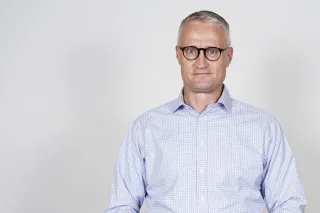The tipping point: What kind of future do we want?
According to experts, we are living critical times. Our living environment is close to reaching potential tipping points after which there is no return to the way things were before. VTT's foresight researchers gathered a group of Finnish experts to envision the future: what kind of world do we want 80 years from now and what should we do already today?
To be able to avoid such developments, both in terms of biodiversity loss and climate change, we must look further into the future. Therefore, in this publication, we are envisioning the world in 80 years' time and asking what we should do already today? What we need is a radical change.
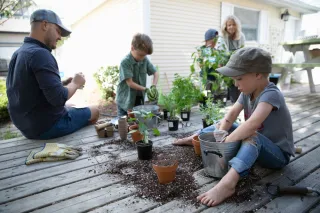
For as long as 80 years, VTT has been playing a significant role in catalysing renewal and ensuring the functioning of society with the help of innovation. We hope this will still be true 80 years from now, in 2102. But what will life in Finland, as part of the global world, look like at that point? In 80 years, technological development will go forward and change our society in unanticipated ways. As people, we will still need the same things as our ancestors in the distant past: food, warmth, security and other people.
The best way to create the kind of future you desire is to live it in this moment.
━ Mikko Dufva, Leading foresight specialist, Sitra
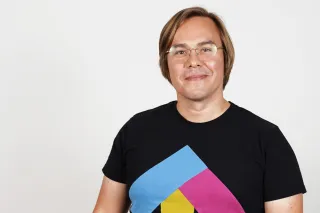
In this vision for VTT's anniversary year, we are painting a radically rosy picture of the future. The purpose of the vision is to spark new ideas and to accelerate turning wishes into actions. We invite you to join us in making this rosy picture of the future a reality.
We have chosen these themes through which we envision the future
Theme 1: Environment
Zero waste, low-emission world
In 2102, we know how to deal with extreme weather phenomena. But will people stop destroying nature? In 80 years’ time, people’s relationship with nature will be characterised by ecosystem thinking, the idea of natural technology and the central role of nature being used as a living surface material in the built environment. In fact, all human activities are coming closer to how nature works.
The approaching tipping points and the extreme weather phenomena will very quickly change the way people see things.”
━ Kerttu Kotakorpi, Meteorologist, Finnish Broadcasting Company YLE, non-fiction writer
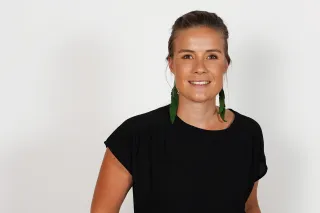
Theme 2: Everyday life
Our everyday life is meaningful
Could our present consumption-centric way of life and economy be just a dark chapter in human history? What if, over the next 80 years, we have succeeded in breaking the pattern of economic inequality, and a good life would be within everyone's reach, both in Finland and elsewhere in the world?

Humans have the brain of a herd animal. Being able to help others is rewarding to us. We also have the need for self-fulfilment. And then, people are curious by nature – we want to
invent novel things.
━ Minna Huotilainen, Professor and brain researcher, University of Helsinki
Theme 3: Health
Everyone can afford good health
What will a good life be like in the future? The health and well-being of the Finnish population has improved very rapidly over the past decades. For example, the life expectancy increased by as much as 10 years between the 1970s and 2010s. To avoid a turn into a worse direction, we need to introduce innovations that enable a healthy life for everyone in 2102. We must develop solutions to such issues as nursing shortage, increase in obesity and loneliness among the working age population, problems caused by alcohol
and substance use, deteriorating physical condition of young
When monitoring the health of the population, issues like ethnic and cultural diversity, gender diversity and family diversity are taken into account better than earlier.
━ Shadia Rask, Research Manager, Finnish Institute for Health and Welfare (THL)
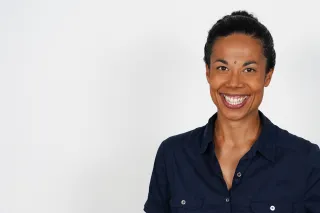
Theme 4: Food
Eating together
In human history, we have gone from one food crisis to another and always found solutions to them. Now, we are headed for a new food and health crisis accelerated by climate change. To overcome it, we need to introduce disruptive technologies and radically change our habits. In 2102, we cannot continue producing and consuming food in the same way we are now.
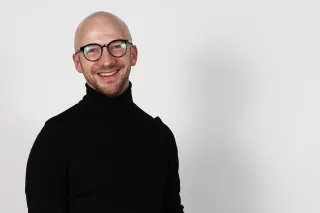
It’s an absurd idea that, in the future, we would need to walk into a hall made of sheet metal to do our grocery shopping and be expected to make smart consumption choices.
━ Lauri Reuter, Founder & Partner, Ph.D., Biotechnology, Nordic Foodtech VC
Theme 5: Safety and security
Security is the prerequisite of a digital society
Challenges related to food, health, livelihoods and the environment can be solved. Digitalisation, reaching everywhere, plays a significant role behind these solutions. Digital security is the prerequisite of a functioning future society. In other words, could finding solutions to digital security raise the use of technology in our lives to a new level?
The term cyber security will disappear already within the next few years, as it will become an integral part of all security.
━ Jarno Limnéll, Professor of Practice, Cyber Security, Aalto University
